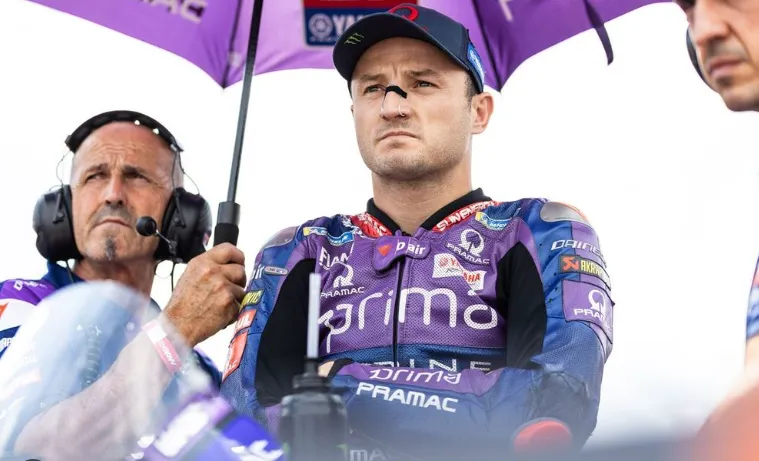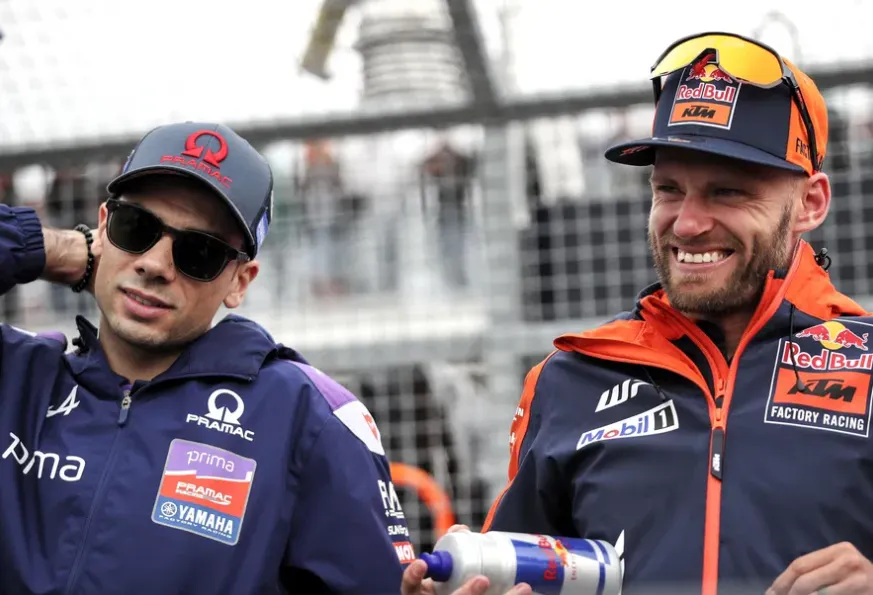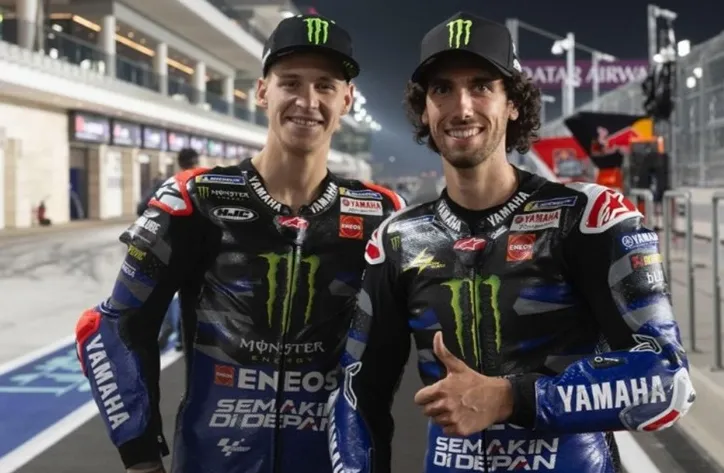
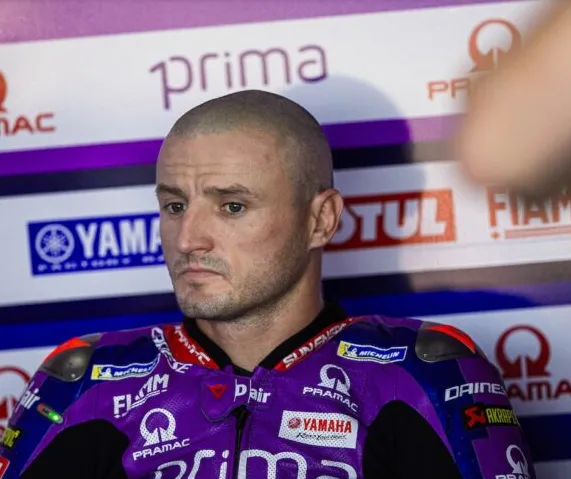
Jack Miller Shocks with Statement About MotoGP Rookies: ‘They Are Being Exploited Too Much’ – Is he targeting the organizers? Is He Aiming for the Organizers?
In a sport where courage and talent meet brutal physical and mental demands, Jack Miller has always stood out—not just for his riding style, but also for his unfiltered honesty. But his latest remarks have shaken the MotoGP paddock and sparked a fiery debate. Speaking after the Grand Prix of the Americas, the experienced KTM rider didn’t hold back: “The rookies are being exploited too much. It’s getting out of hand.”
That one quote has opened a Pandora’s box of questions. Is Miller criticizing MotoGP organizers? Is there an underlying problem with how young riders are treated in their rookie year? And what does this say about the state of the sport in 2025?
Miller’s Bold Accusation: A Call for Protection or a Direct Shot at Dorna?
When Jack Miller speaks, fans listen—partly because he’s one of the few top riders who dares to challenge the establishment. His comment about rookies being “exploited” immediately raised eyebrows. While he didn’t name anyone in particular, the implication was clear: MotoGP rookies are being overburdened in a way that may not be sustainable—or fair.
During a media debrief, Miller expanded on his concerns. “These kids are being thrown into sprint races, full-length races, endless media obligations, and crazy testing schedules. They’re barely out of Moto2, and they’re expected to perform like seasoned veterans. It’s not right.”
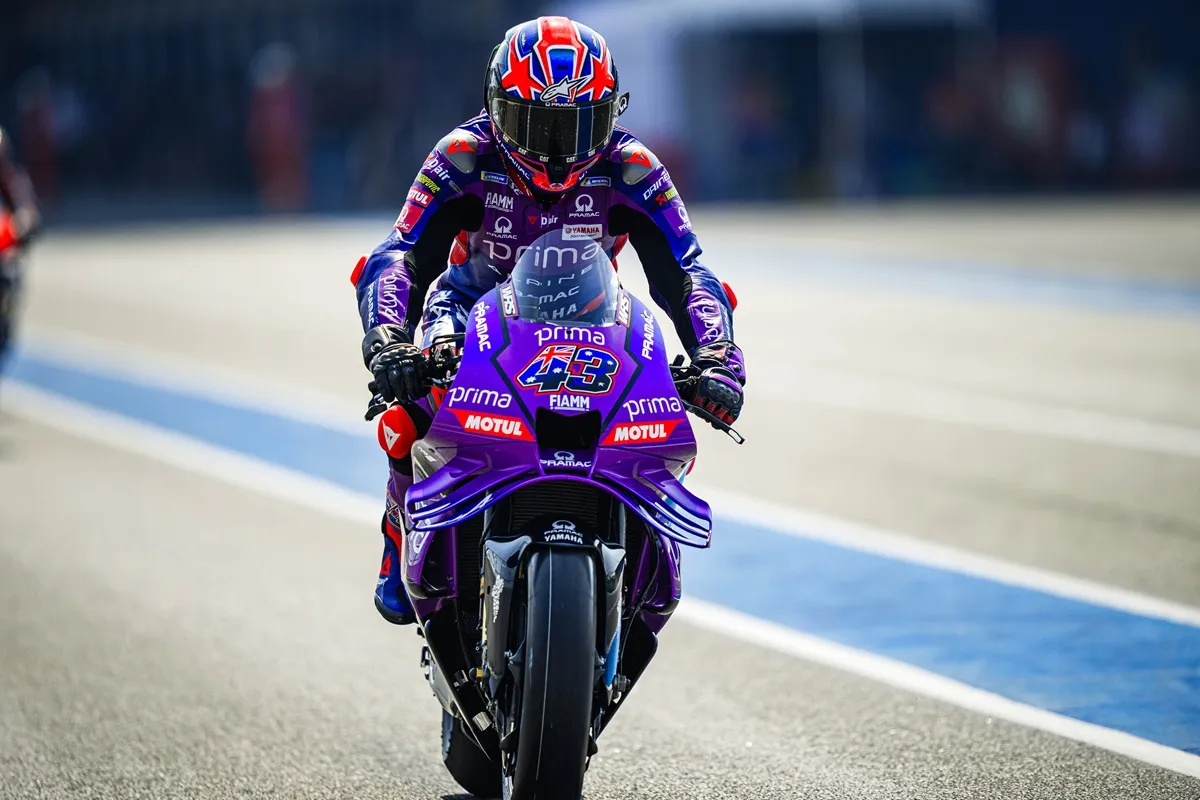
This isn’t the first time the Australian rider has voiced his discontent with aspects of MotoGP’s evolving format. But this time, his tone was more urgent—and some believe it was a veiled criticism of Dorna Sports, the sport’s commercial rights holder and organizer of race weekends.
While Dorna has not responded officially, insiders say Miller’s comments have made waves in the top offices of MotoGP. Privately, team managers are said to be echoing some of his concerns. Could Miller be speaking not just for himself, but for a growing faction within the paddock?
A Rookie’s Reality in the Sprint Race Era
Bold demands placed on rookies
The MotoGP sprint race era, which began in 2023, has completely reshaped the demands placed on riders. Every race weekend now features two high-stakes competitions: the Saturday sprint and the full-length Sunday Grand Prix. For veterans, this means adapting race strategy and energy management. But for rookies? It means being thrown into the deep end immediately.
Young talents like Pedro Acosta, Fermin Aldeguer, and Tony Arbolino have had to adjust to these intense weekends without the grace period that earlier generations enjoyed. Back when Miller debuted, rookies were given time to acclimate to bike power, tire wear, and circuit nuances. Now, they must score points from day one or risk being labeled underperformers.
“They barely get time to breathe,” Miller said. “I see these kids doing six interviews on a Friday, pushing in FP1, going into qualifying on the limit, then risking it all in two races. That’s a lot for a 19-year-old who just moved up from Moto2.”
The data supports Miller’s concern. Rookies are not just racing more—they’re crashing more. Sprint races have seen a sharp rise in first-lap incidents, many involving less experienced riders trying to prove their worth in ultra-tight battles. The pressure to perform quickly is creating a dangerous loop of risk, reward, and burnout.
The Economics of Exploitation: Are Young Riders a Marketing Tool?
MotoGP using youth for commercial gain
Miller’s comments also highlight a less-discussed dynamic: rookies are now a key asset in MotoGP’s marketing strategy. With the retirement of icons like Valentino Rossi and the aging of current stars like Marc Márquez, MotoGP has made a strong push to promote the “next generation.”
Riders like Acosta, with his natural charisma and explosive riding style, have become media darlings before they’ve even scored consistent podiums. Sponsors, broadcasters, and race promoters are eager to capitalize on their youth and potential.
This leads to increased commercial obligations—media days, fan events, pre-race interviews, and social media campaigns. All of this adds strain to riders who are still trying to find their rhythm on a 300-horsepower MotoGP machine.
Miller pointedly asked: “Are we growing stars, or are we selling their faces before they’ve even won a race?” That comment hits at the heart of a broader issue in modern motorsports, where marketing can sometimes outpace merit.
Dorna may argue that visibility helps rookies secure sponsors and long-term viability, but the question remains: is the price of that exposure too high?
Mental Health and Longevity: A Brewing Storm?
Mental toll of MotoGP’s intensity on rookies
Beyond the physical risks, Miller’s warning touches on a critical issue that MotoGP has yet to fully address—mental health. The stress of adapting to new machinery, handling public scrutiny, and managing on-track expectations has already derailed a few promising careers.
Veterans like Andrea Dovizioso and Jorge Lorenzo have spoken in the past about the mental fatigue that can accumulate over years. But what happens when that fatigue starts at 19 instead of 29?
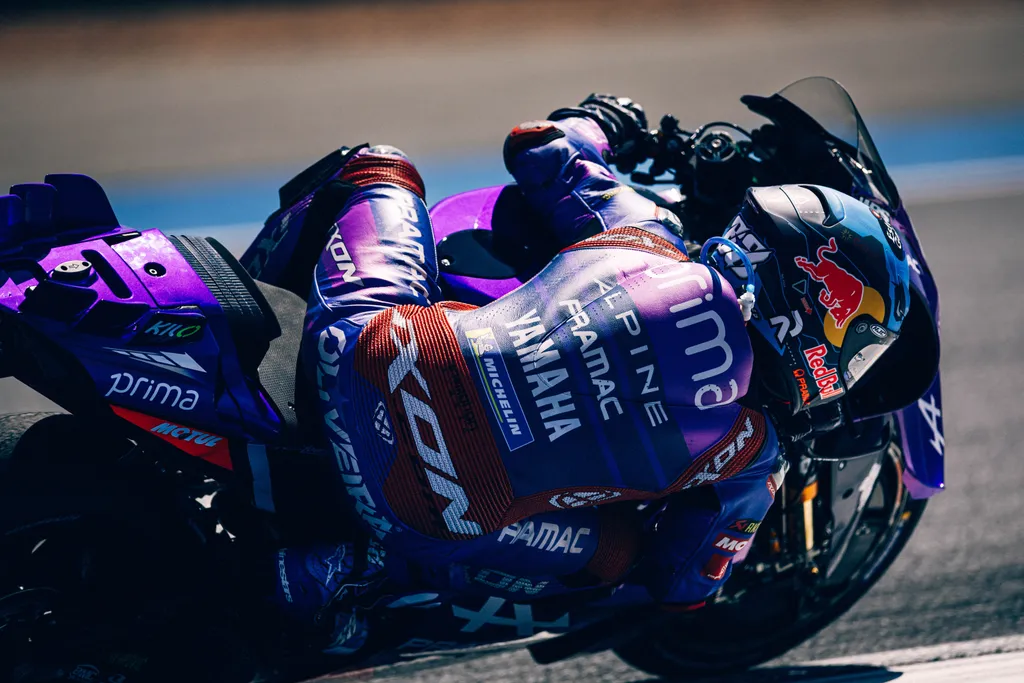
Jack Miller, now a married man and one of the emotional leaders of the KTM garage, has been increasingly outspoken about mental wellness in the paddock. He’s seen what pressure can do—he’s lived through the criticism, the injuries, the rumors of being replaced.
That lived experience is what fuels his concern for rookies. “They don’t have the support structure yet. They’re isolated, unsure, and often afraid to speak up,” he said.
Mental health advocates within the sport are now pushing for MotoGP to consider structural changes—perhaps limiting media sessions for rookies or introducing a mentoring program with veteran riders like Miller and Aleix Espargaró. The goal? Create a culture where long-term growth is valued over short-term results.
Dorna’s Dilemma: Innovate or Protect?
MotoGP’s organizers are stuck in a delicate balancing act. On one hand, they must keep the product exciting, youthful, and globally marketable. On the other, they must ensure the long-term safety and development of their athletes. The sprint race format, rookie media packages, and rapid-fire promotional campaigns are all part of a broader strategy to boost viewership and fan engagement.
But as Miller has reminded the paddock, riders are not just assets—they’re people. The line between challenging young talent and exploiting them is razor-thin. And the consequences of crossing that line could be disastrous: shortened careers, mental health crises, and even preventable injuries.
So far, Dorna has praised the energy of the rookies and maintained that MotoGP is “more competitive and thrilling than ever.” But if riders continue to speak out—as Miller has boldly done—changes may be inevitable.
Final Thoughts: Is Jack Miller the Voice of Reason MotoGP Needs?
Jack Miller has never been afraid to speak his truth. Whether celebrating with a shoey on the podium or dropping F-bombs in press conferences, he’s authentic, passionate, and fiercely protective of the sport he loves.
With his latest comments, he’s brought a critical issue into the spotlight: Are MotoGP rookies being given a fair chance—or are they being pushed too hard, too soon?
As the season unfolds and rookies continue to face sprint race chaos, mounting pressure, and rising expectations, Miller’s warning may be remembered as a turning point. The paddock is listening. Now the question is—will the organizers act before it’s too late?








